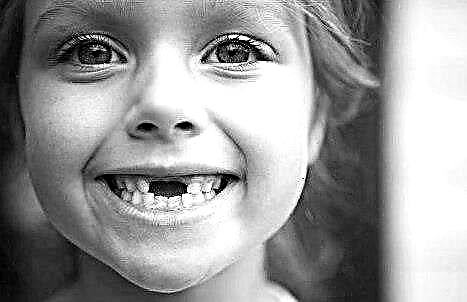Children sometimes lead us to despair. We think: "What are they irresponsible, soulless, they only need to play and have fun!" We get nervous, angry, scolding them endlessly. Once we understand that this is a vicious circle: we are moving away from them more and more, they are closed off from us, we cannot influence them.

If we switch to an abusive style of upbringing, we generally behave like other people's uncles and aunts, who are disgusted that other people's children are behaving disgustingly nearby.
Once I realized that the whole point is to change my view of parenting. Just looking differently - and from this everything will change quite a lot.
You need to look at your communication with children not as a burden and care, but as a ... puzzle, puzzle - really breaking your head. And keep in mind that this task may not give in for years. But instead of "Oh horror!" you might think: "Well, we will fight with her!" (Only not with a problem, not with children).
After all, if we encounter a problem in our profession, we do not get nervous, but solve it. And at the same time (if we love work) we take on it with warmth and inspiration, and no difficulties stop us.
All kinds of tasks surround us. Work, everyday life supply us with whole mountains of tasks and tasks. But we must remember that for thousands of years man has survived amid the most difficult conditions and catastrophes - which means that every person has an extraordinary power to overcome difficulties. So are we really going to be nervous because a child smears porridge on the table? ..
I look at my work tasks, make plans. This and this I need to thoroughly study, master this, and do this by a certain date. I see that some of the work issues are difficult for me, and I estimate that it will take me several months, if not years, to resolve them. And I divide this tremendous question into parts and every day I cope with one of the parts (even particles).
Isn't that what we should do with our children?
Children are our puzzle. Children are a terribly difficult and entertaining task. What's in their heads? Why do they suddenly begin to be rude, leave trash behind, wipe their hands smeared with paint with a towel? .. We are horrified by the number of these "why", we drown in them.
Let's take one of these problems and look at it as entertaining and challenging.
Of course, this task is often different from the tasks that our profession brings us. Children not only ask us intractable questions, but also evoke our emotions - not always positive ones (irritation, anger, pain, despair). And it is emotions that often prevent us from looking at the situation with children as a task. We get angry and stop managing our behavior. We grumble, shout, scold them. And this does not solve the problem at all. We replace the true decision with an instant reaction - to make a remark, to swear, to shame. We reacted (as if fulfilling our parental duty towards children), but did not make any progress in the decision.

Looking at the conflict situation with children as a problem allows us not to succumb to emotions and respond more intelligently. We do not burn with anger or resentment - it passes us by. We are in a more balanced state of thinking about how to respond adequately now and how we can influence similar situations later.
We constantly exchange emotions with children: we feel their condition and convey our responsive feelings. We read unwanted behavior (rudeness, whim), and feelings (anger, resentment) arise in us. Training (that is, a conscious focus and constant exercise) allows you to learn how to reduce negative feelings in yourself (we do not allow ourselves to be "infected" by them, we put a "screen") or express them correctly.
We often do not think that education needs to be learned, like any other business. And learning happens effectively in practice, not in conversations.
See conflicts not as stressful situations, but as communication training. And in order to learn how to effectively influence our children in a good way, we must undergo many such trainings.
Upbringing sometimes causes despair because we consider ourselves to be already established educators and from this we experience our impotence and failures especially acutely.
We are not educators yet. We are studying. We are trying. We have been given an incredibly many exciting tasks. We have a lot of strength. We take on these tasks with fun and inspiration.
We must maintain in ourselves this good passion, which happens when solving a puzzle - lightness, gaiety, audacity, perseverance. And then communication with our children will turn into joy and exciting exploration.
Author: Daria Velizhanina



